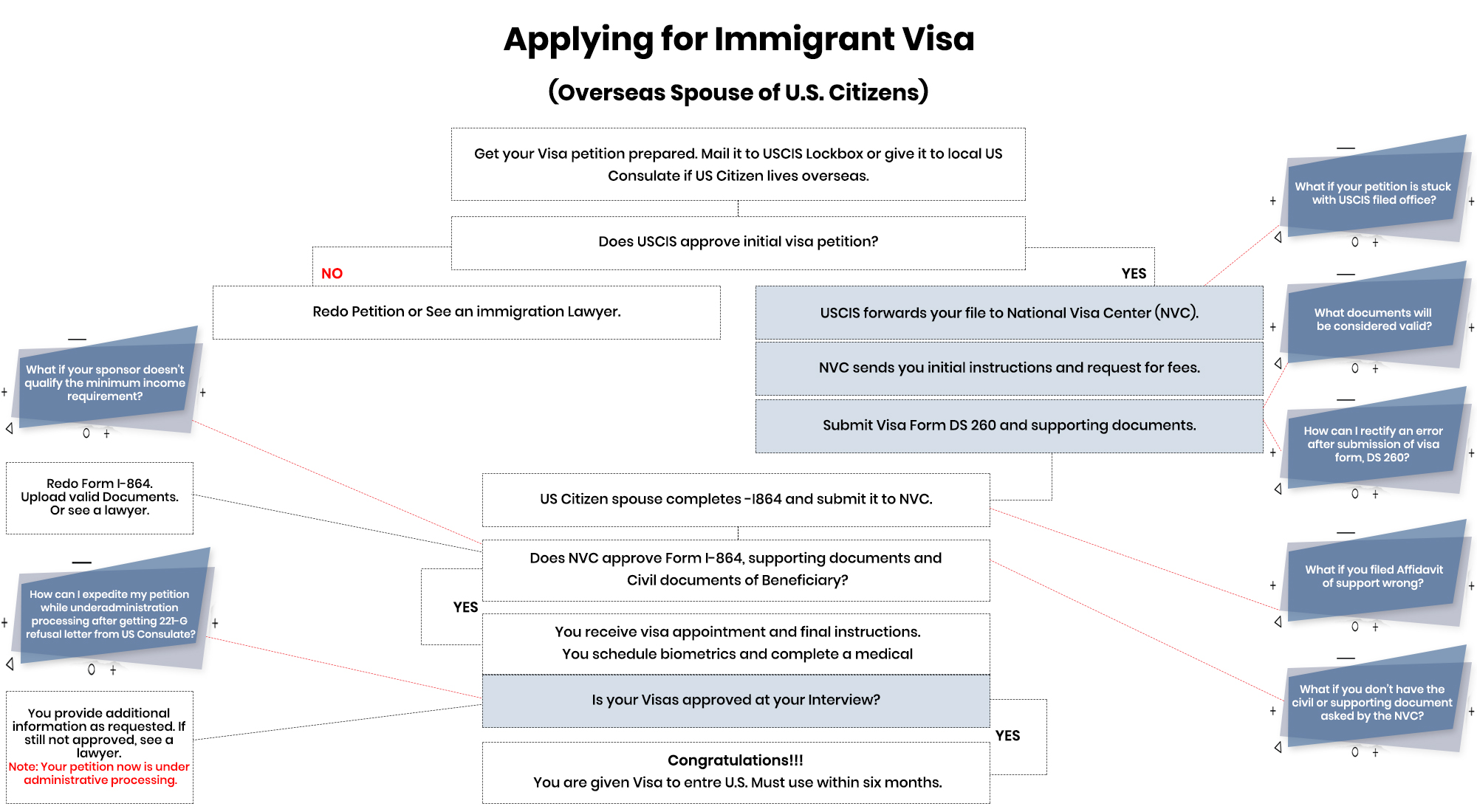FAQ-Immidiate Relative
Immediate Relative Petition for US Immigration
FREQUENTLY ASKED KNOWLEDGE BASED QUESTIONS
What are the exemptions from the availability of a visa numbers for immediate relatives of U.S. citizens?
You must have an immigrant visa number available from the Department of state unless you are in a category that is exempt from visa numerical limitations. Immediate relatives of the U.S citizens are exempted from this requirement. Immediate relatives of United States citizens are parents, spouses, and unmarried children under 21 years. Other immigration visa categories that are exempt from visa numerical limitations and do not required a visa number includes juvenile, special immigrant and military petitions. For family members of lawful permanent residents, visa numbers are limited each year. This means that you may not get an immigrant visa number immediately even if the USCIS has approved your petition. In certain cases, the USCIS takes several years to approve your immigrant visa petition
Can i file adjustment of status for my family members?
Yes, your immediate family members can apply adjustment of status application if they are in the United States.
I read on google that the Green Card numbers are limited for some category, is this true?
Not for the fiancé/ fiancée or spouse of a US citizen. For immigrants arriving in the United States, there is a set number of how many (Green Cards) will be issued to people of a particular nationality.
However, this is not an issue in the the fiancé/ fiancée or spouse visa category of the US Citizen because an unlimited visa numbers can be issued to spouses of US Citizens. An adjustment of status application should be filed with the United States Citizenship and Immigration Services in the district of the applicant's residence.
What is the medical examination process?
All I-485 applicants must have to pass a medical examination conducted by a civil surgeon approved by the USCIS. You can find the USCIS approved civil surgeon in your area in the USCIS web site.
The civil surgeon will record the results of the examination on Form I-693 and seal it an envelope which should be submitted to USCIS along with the I-485 application. The applicant has to pay the doctor and laboratory fees for the medical examination. You must carry your passport or photo identification and bring your medical and vaccination history. If a condition is diagnosed which makes you inadmissible, you may still be eligible for immigration after completing treatment for your medical condition.
What is the fingerprinting process?
When you file Adjustment of status I-485, you will be fingerprinted so the FBI can check criminal records. USCIS accepts fingerprint cards prepared only by authorized centers such as Application Support Centers, and the U.S Consular offices and military installations abroad. The USCIS will send you a letter with an appointment for fingerprinting at the nearest ASC locations. You must carry the letter with you when you go in for fingerprinting. There is a fee charged per applicant.
I am a U. S. citizen. Can I sponsor my aunt, uncle, or cousins to become permanent residents?
No. There is no family-based visa category for aunts, uncles, cousins, or grandparents. Being a US Citizen you can sponsor your immediate family members like Spouse, Parents, Children and you can also sponsor your Siblings.
How Long Is the Wait for immediate relative and family -based preference category Visa?
For immediate relatives, US immigration has not defined and visa quotas, which means a visa is immediately available. If the immediate relative is in the U.S. and have filed a petition concurrently at USCIS then the wait time for the entire process takes on average around six months. But If the immediate relative is in abroad, then the entire process which includes consular processing takes on average from nine to twelve months. Note that these timelines are not fixed, and subject to change at any time.
Now If we talk about the wait time for family-based preference category visa, then the waiting time applicable to each category vary depending on the type of category and the immigrant's country of origin. You can check the current list of the waiting times applicable to each category on the given link: https://travel.state.gov/content/visas/en/law-and-policy/bulletin.html.
What Happens if the Petitioner Passes Away:
If the petitioner passes away then your petition will be revoked automatically. However, there are certain exceptions, in the form of Humanitarian Reinstatement. Now when and at what situation Humanitarian Reinstatement should be applied is the most important question. If the U.S. citizen spouse dies, the noncitizen spouse may still be eligible for immigration benefits as a widow or widower.
If other surviving family members were residing in the U.S. at the time of the death of the petitioner then they may qualify for immigration benefits, but if the beneficiary cannot establish residency in the U.S. then they have to request for humanitarian reinstatement.
How would a United States Citizen get a green card for his/her immediate relative?
If you are an immediate relative of a United States citizen, you can get a Green Card and become a Lawful Permanent resident based on your family relationship .you have to meet certain eligibility requirements
You are an immediate relative if you are:
If your immediate relative has ever lived in the United States without any legal status, he/she may be ineligible to get a green card, or he/she may require a waiver, depending on the circumstances.
Please Consult our immigration attorney before you file any immigration application
You have to follow the instructions from USCIS if you are a United States citizen applying for an unmarried child over 21 years, a married child, or your brother or sister over 21 years
How we describe “Immediate relative?”
The following are considered immediate relatives and eligible for a lawful permanent resident status (green card):
Parents of United States citizens who are more than 21 years old Spouses of United States citizens Unmarried child under 21 year age of a United States citizen.

